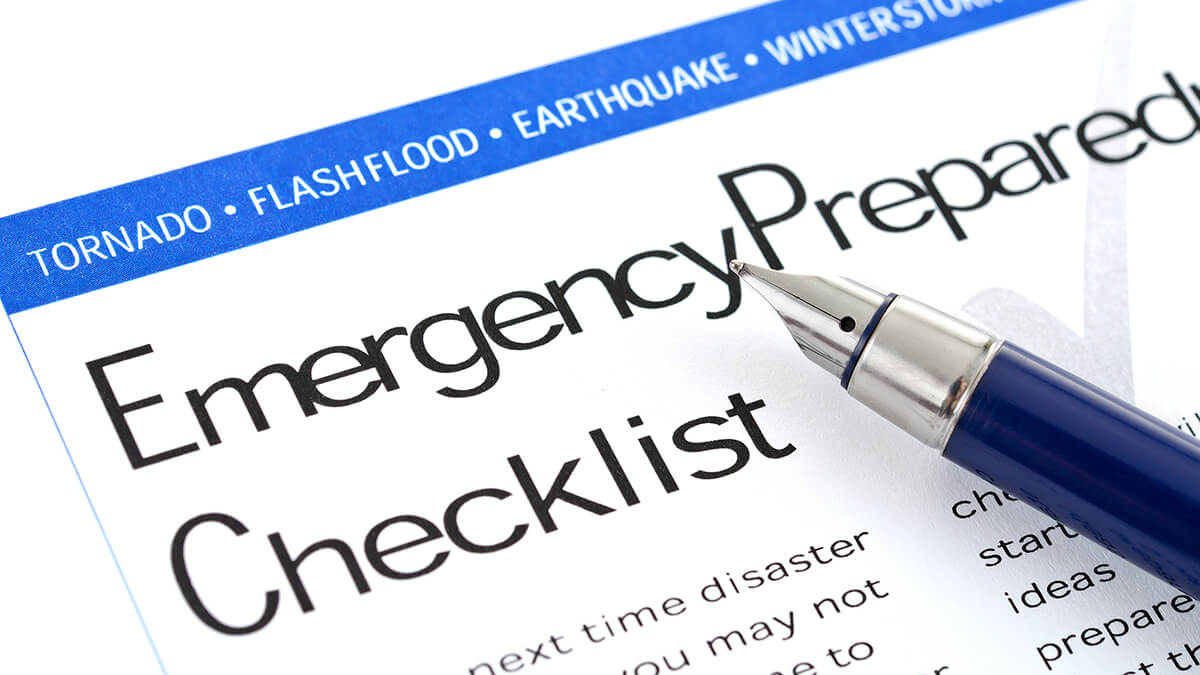Each year, emergencies impact business and industry—in lives and in dollars. And whether you work in a high-rise building or an industrial complex; are a part of a large or small organization; or own, rent, or lease your property; being prepared in the event of an emergency is vital. By preparing ahead of time, injuries and damages can be limited and operations can return to normal more quickly. In Walden University’s Doctor of Business Administration (DBA) program, students learn how to formulate effective solutions to complex, real-world problems common to the practice of business and management. Study alongside Walden DBA students with this required reading taken from the course Impact of Homeland Security Policies on Business Continuity.1
What Is an Emergency?
An emergency is any unplanned event that can cause deaths or significant injuries to employees, customers, or the public; or that can shut down your business, disrupt operations, cause physical or environmental damage, or threaten the facility’s financial standing or public image.
Obviously, numerous events can be “emergencies,” including:
- Fire
- Hazardous materials incident
- Flood or flash flood
- Hurricane
- Tornado
- Winter storm
- Earthquake
- Communications failure
- Radiological accident
- Civil disturbance
- Loss of key supplier or customer
- Explosion
The term “disaster” has been left out of this document because it lends itself to a preconceived notion of a large-scale event, usually a “natural disaster.” In fact, each event must be addressed within the context of the impact it has on the company and the community. What might constitute a nuisance to a large industrial facility could be a “disaster” to a small business.
What Is Emergency Management?
Emergency management is the process of preparing for, mitigating, responding to, and recovering from an emergency. Emergency management is a dynamic process. Planning, though critical, is not the only component. Training, conducting drills, testing equipment, and coordinating activities with the community are other important functions.
Making the “Case” for Emergency Management
To be successful, emergency management requires upper management support. The chief executive sets the tone by authorizing planning to take place and directing senior management to get involved. When presenting the “case” for emergency management, avoid dwelling on the negative effects of an emergency (e.g., deaths, fines, criminal prosecution) and emphasize the positive aspects of preparedness. For example:
- It helps companies fulfill their moral responsibility to protect employees, the community, and the environment.
- It facilitates compliance with regulatory requirements of federal, state, and local agencies.
- It enhances a company’s ability to recover from financial losses, regulatory fines, loss of market share, damages to equipment or products, or business interruption.
- It reduces exposure to civil or criminal liability in the event of an incident.
- It enhances a company’s image and credibility with employees, customers, suppliers, and the community.
- It may reduce your insurance premiums.
Four Steps in the Planning Process
Step 1: Establish a Planning Team
There must be an individual or group in charge of developing the emergency management plan.
Step 2: Analyze Capabilities and Hazards
This step entails gathering information about current capabilities and about possible hazards and emergencies, and then conducting a vulnerability analysis to determine the facility’s capabilities for handling emergencies.
Step 3: Develop the Plan
You are now ready to develop an emergency management plan.
Step 4: Implement the Plan
Implementation means more than simply exercising the plan during an emergency. It means acting on recommendations made during the vulnerability analysis, integrating the plan into company operations, training employees, and evaluating the plan.
Stand Out as a Business Leader When You Earn Your DBA Degree at Walden University
The Federal Emergency Management Agency’s Emergency Management Guide for Business and Industry is just one of the many materials you’ll have the opportunity to study when you enroll in Walden’s Doctor of Business Administration program. This advanced business degree is designed to give you a deeper understanding of business best practices, while improving your leadership skills and credentials. Earning your doctorate in business is also a great decision if you’re looking to unravel complex challenges and move your business forward. And thanks to Walden’s online learning format, earning your DBA degree is more convenient than ever before. Work toward your business degree or management degree from wherever you have internet access—no need to completely rearrange your schedule or commute to campus. Walden’s online Doctor of Business Administration (DBA) degree program gives you the power to take classes at whatever time of day works best for you as you continue to commit to your company full time.
Walden University is an accredited institution offering a BS in Business Administration, Master of Business Administration, and Doctor of Business Administration, as well as a suite of management degree and certificate programs online. Expand your career options and earn your degree with a convenient, flexible format that fits your busy life.
1Source: (Walden Blackboard) https://wa.elearning.laureate.net/bbcswebdav/institution/USW1/_MASTERS_/DR_DDBA/DDBA_8590/USW1_DDBA_8590_resourceList.html?course_uid=USW1.DDBA.8590.EPTI_REVIEW.MASTER&service_url=https://wa.elearning.laureate.net/webapps/bbgs-deep-links-BBLEARN/app/wslinks&b2Uri=https%3A%2F%2Fwa.elearning.laureate.net%2Fwebapps%2Fbbgs-deep-links-BBLEARN#weeks6-7
Walden University is accredited by The Higher Learning Commission, www.hlcommission.org.




